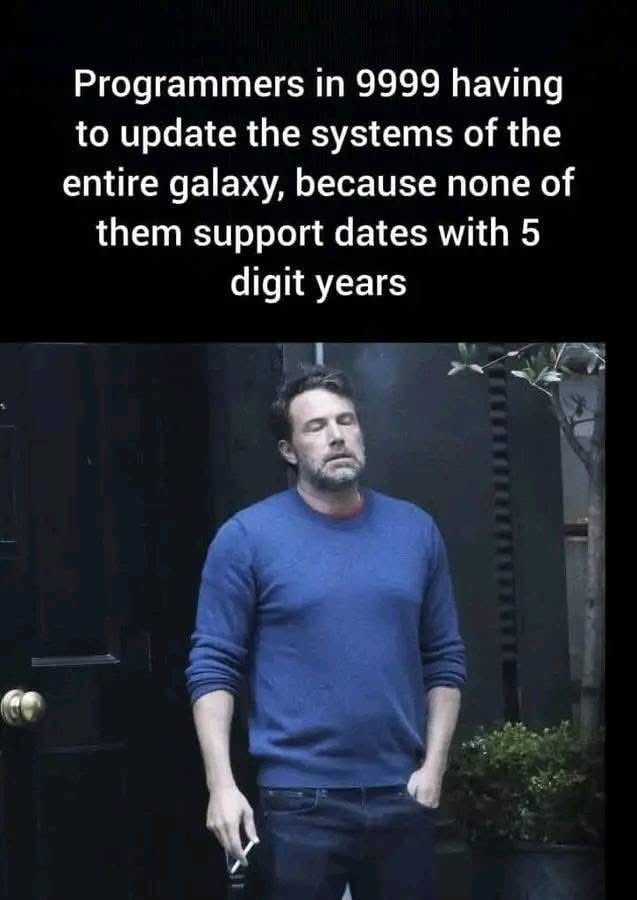this post was submitted on 18 Dec 2024
861 points (98.4% liked)
memes
10637 readers
2975 users here now
Community rules
1. Be civil
No trolling, bigotry or other insulting / annoying behaviour
2. No politics
This is non-politics community. For political memes please go to !politicalmemes@lemmy.world
3. No recent reposts
Check for reposts when posting a meme, you can only repost after 1 month
4. No bots
No bots without the express approval of the mods or the admins
5. No Spam/Ads
No advertisements or spam. This is an instance rule and the only way to live.
Sister communities
- !tenforward@lemmy.world : Star Trek memes, chat and shitposts
- !lemmyshitpost@lemmy.world : Lemmy Shitposts, anything and everything goes.
- !linuxmemes@lemmy.world : Linux themed memes
- !comicstrips@lemmy.world : for those who love comic stories.
founded 2 years ago
MODERATORS
you are viewing a single comment's thread
view the rest of the comments
view the rest of the comments

More of a front end issue actually, almost all time is just stored as the number of seconds since 00:00:00 Jan 1 1970.
And it's represented as a 64 bits value, which is over 500 billions years.
.... About that... https://en.wikipedia.org/wiki/Year_2038_problem
This is for a 32bits encoded epoch time, which will run out in 2038.
Epoch time on 64 bits will see the sun swallow Earth before it runs out.
That's the 32 bit timestamp
We've still got time to fix it, and the next release of Debian will likely have a time-64 complete userland. I don't know the status of other "bedrock" distributions, but I expect that for all Linux (and BSD) systems that don't have to support a proprietary time-32 program, everything will be time-64 with nearly a decade to spare.